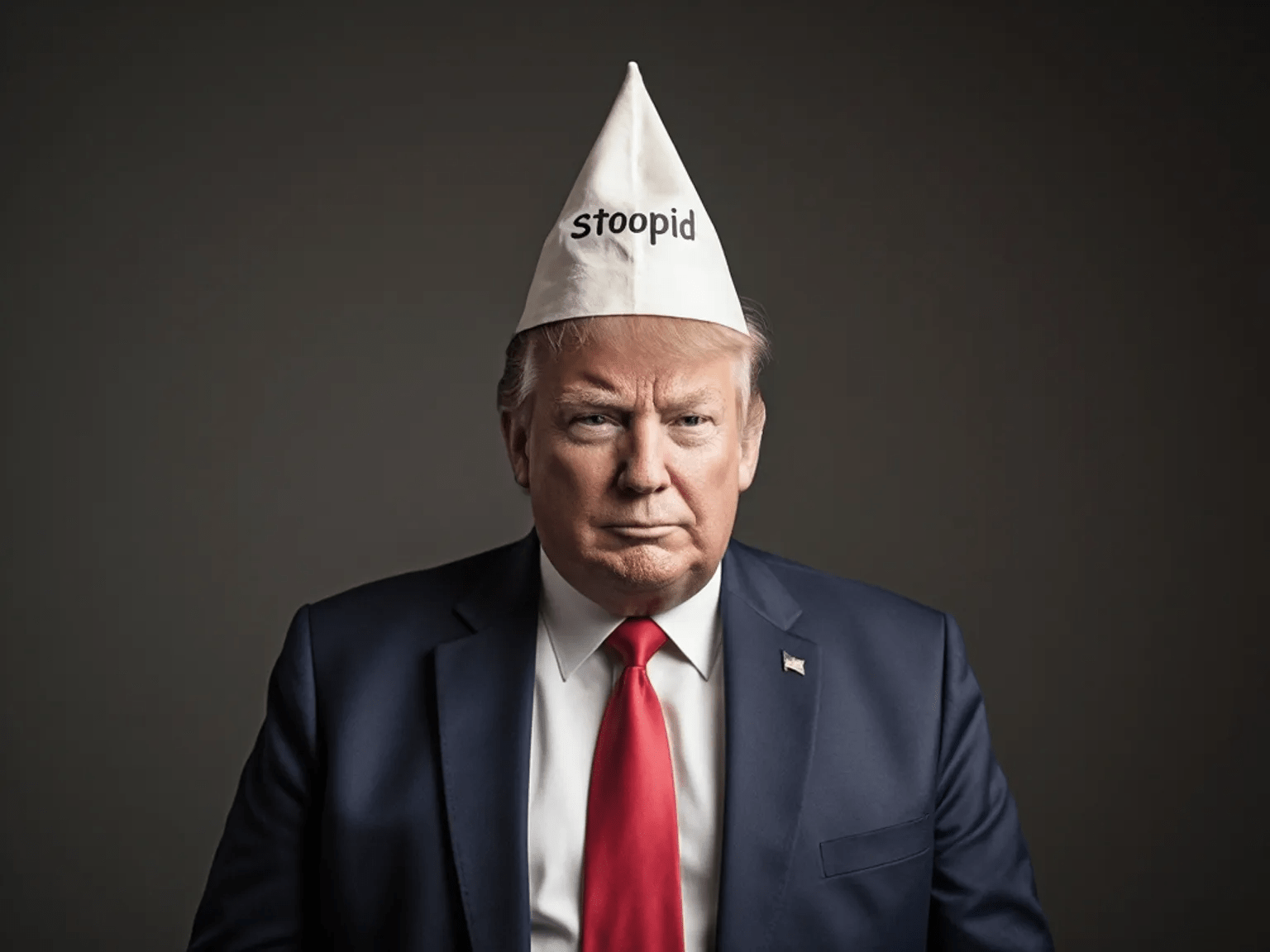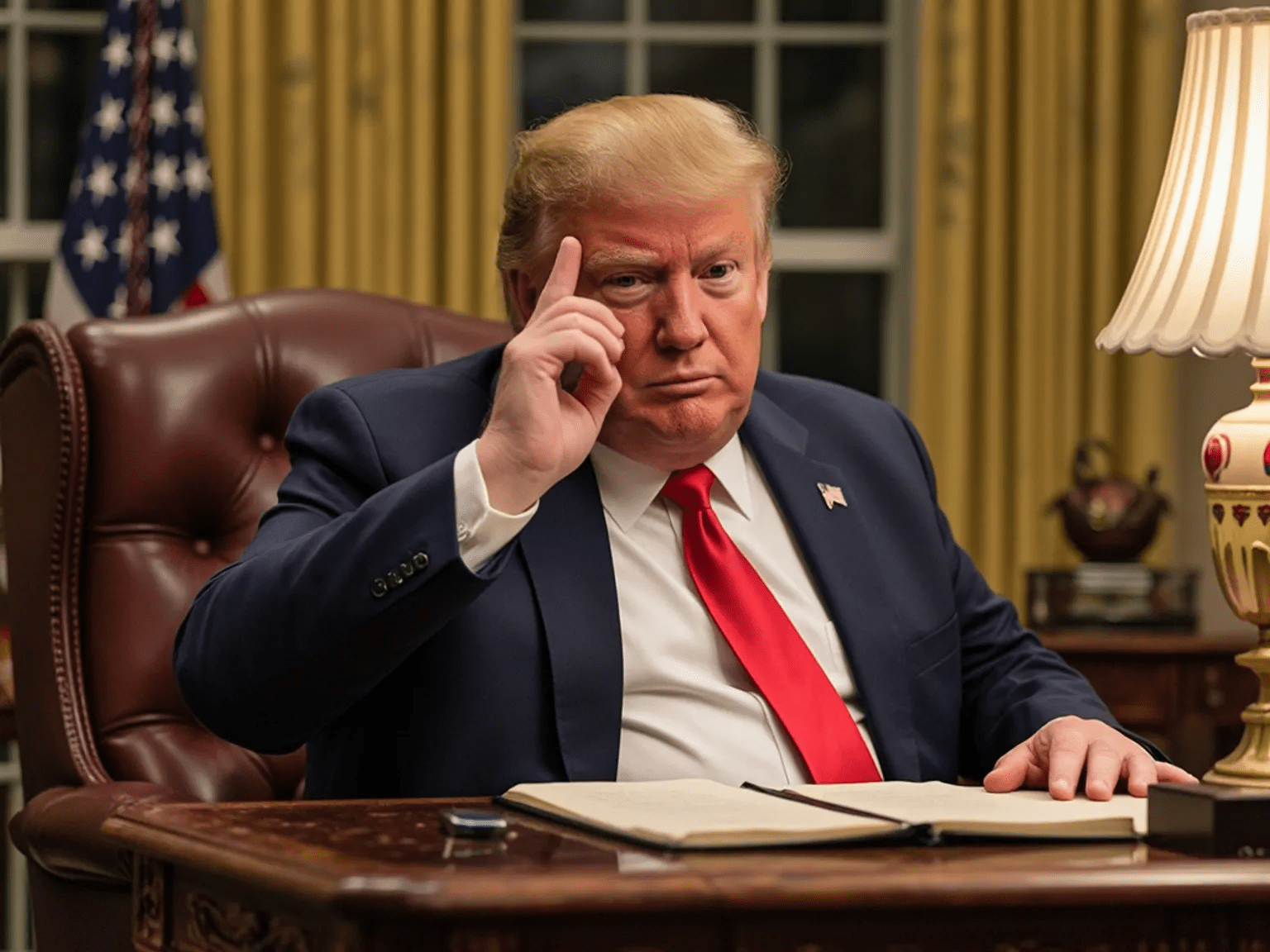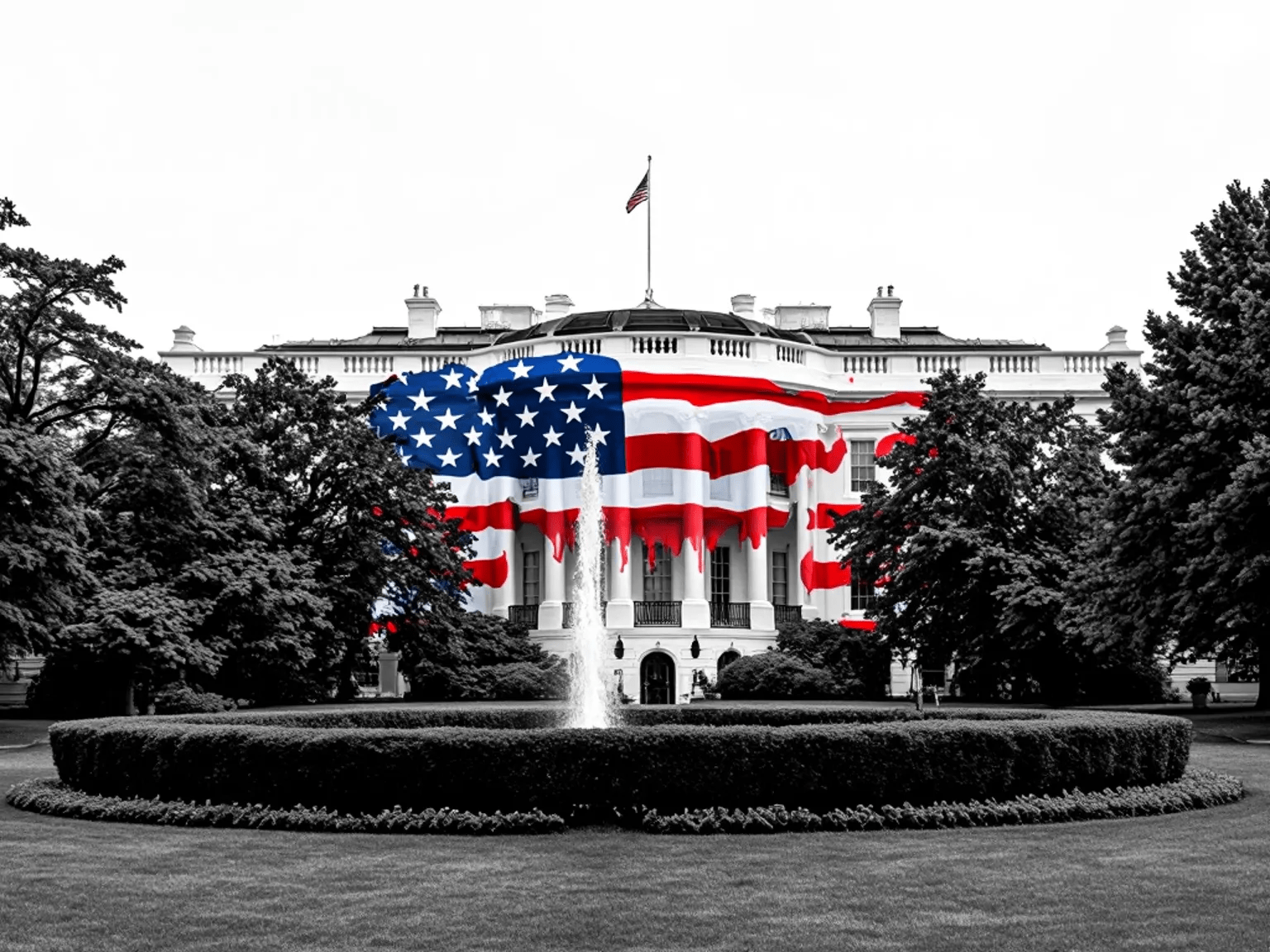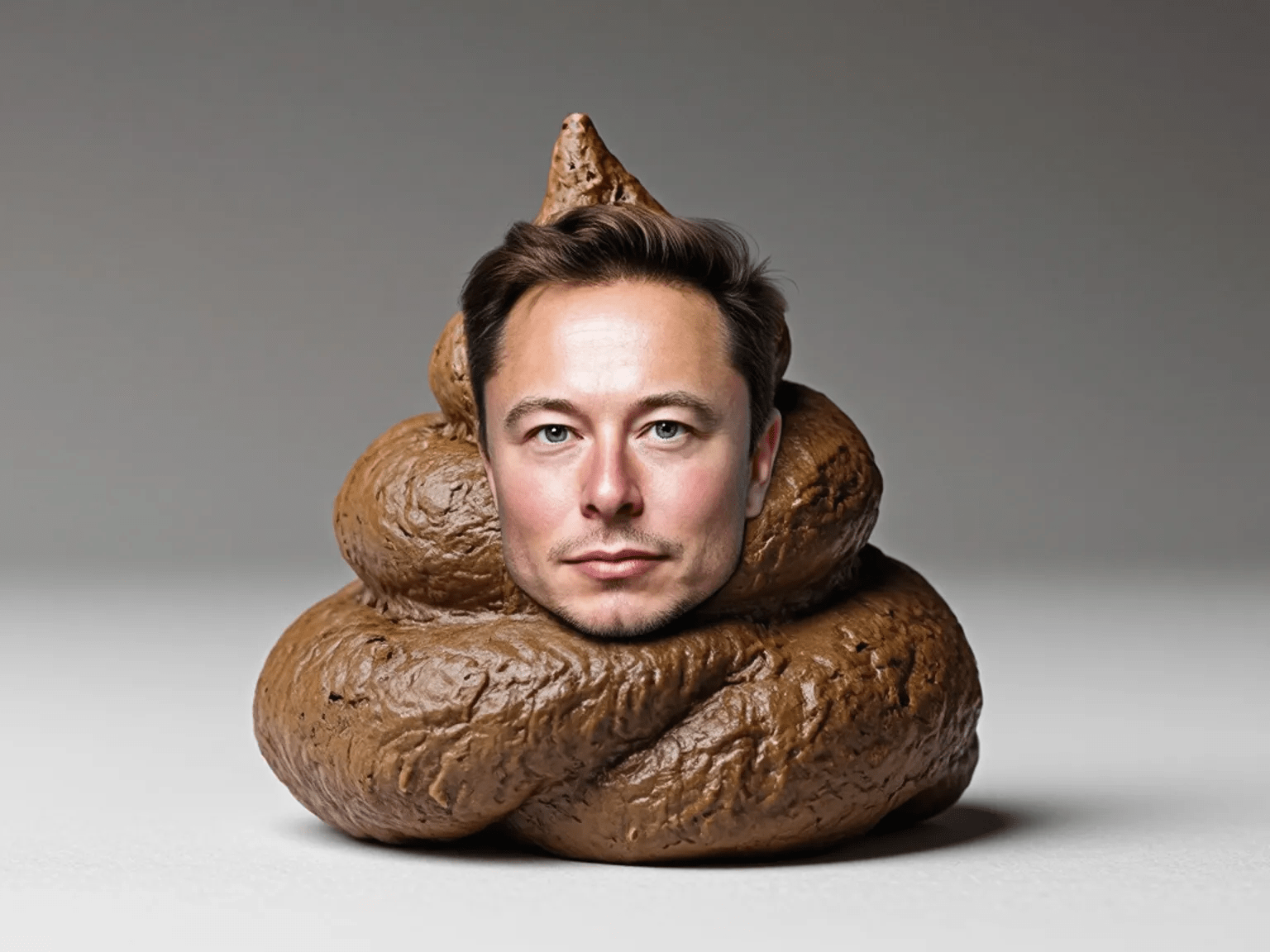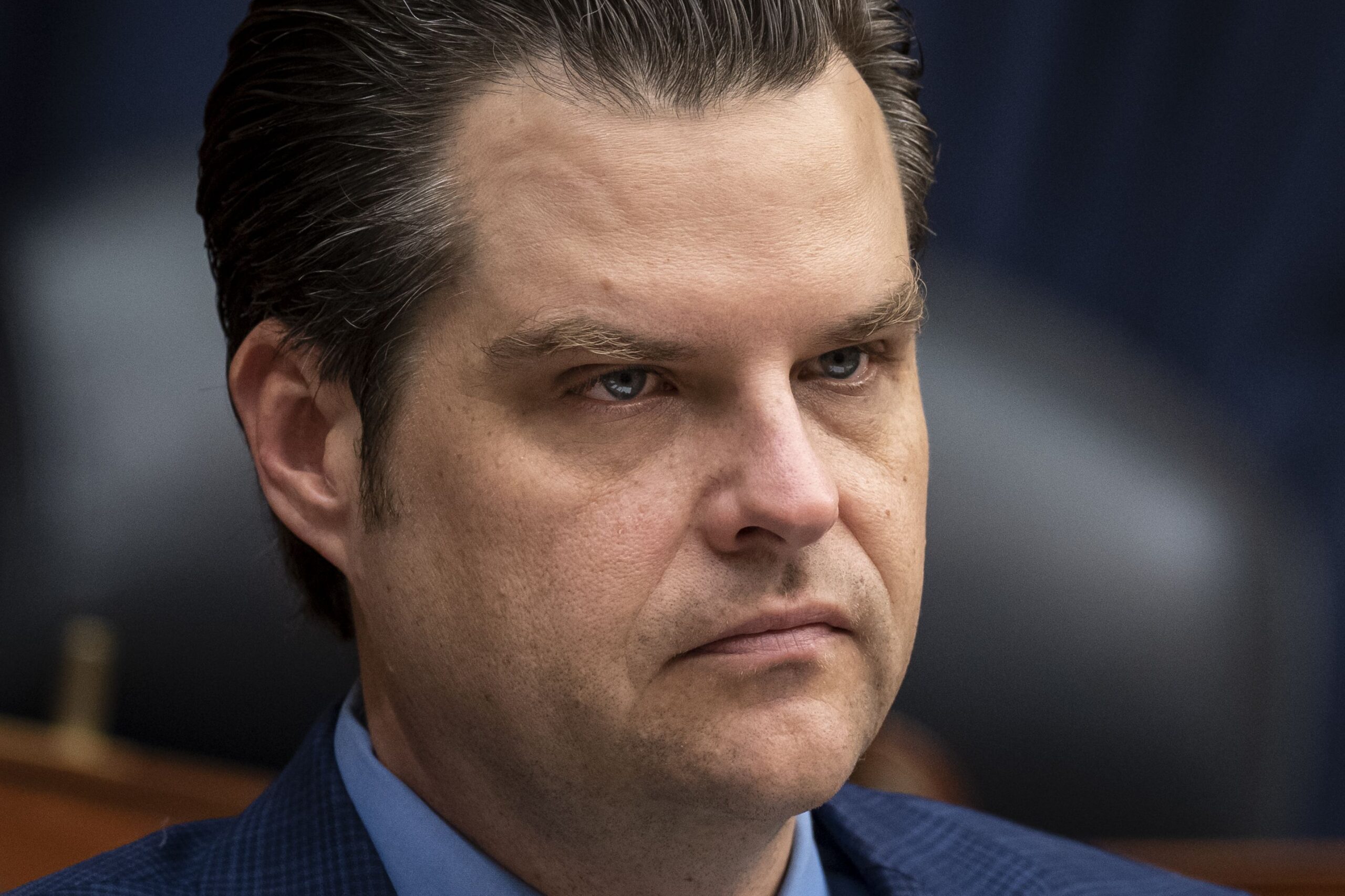Trump Determinded to Make ‘Mericans as Dumb As Him, Or More Dumber
In a move that left educators scratching their heads and late-night comedians rubbing their hands in glee, President Trump unveiled his latest strategy to, in his words, “make education great again by making it less… complicated.” The first step? Dismantling the Department of Education, an institution he believes has been infiltrated by “radical zealots and Marxists”
“Why do we need a whole department for education?” Trump mused during a press conference. “I mean, I turned out fantastic without all that fancy schooling. Just ask anyone—I’m a very stable genius.”
To assist in this endeavor, Trump appointed former wrestling executive Linda McMahon as his Secretary of Education. Critics were quick to point out her lack of experience in the field, but Trump dismissed these concerns. “Linda knows how to body-slam bureaucracy,” he quipped, referencing her WWE past
But the pièce de résistance of Trump’s plan is the introduction of “Trumpinaries”—dictionaries personally curated by the president himself. “These books will increase vocabulary bigly,” Trump proclaimed. “No more of those boring words nobody understands. We’re keeping it simple, folks.”
Early excerpts from the Trumpinary have leaked, revealing some of the president’s innovative definitions:
- Covfefe (noun): A state of unparalleled success; e.g., “We’re winning so much, it’s pure covfefe.”
- Bigly (adverb): To a great extent; e.g., “We’re going to cut taxes bigly.”
- Unpresidented (noun): Someone who isn’t president anymore
In a bold move to simplify language further, Trump announced plans to eliminate “unnecessary” letters from the alphabet. “Who needs ‘Q’ and ‘X’ anyway?” he questioned. “They’re just taking up space. Sad!”
As part of the educational overhaul, Trump also proposed replacing traditional subjects with courses he deems more practical. “Instead of algebra, let’s teach kids about deal-making. Instead of history, let’s focus on Trump history—the best history.”
While some critics argue that these moves could lead to a less informed populace, supporters are thrilled. “Finally, a curriculum that speaks to the common man,” said one enthusiastic parent. “My kid doesn’t need to know about Pythagoras; he needs to know how to brand himself.”
As the nation braces for this educational revolution, one thing is certain: schools will never be the same. Or, as the president might put it, “Education is about to get a yuge makeover. Believe me.

